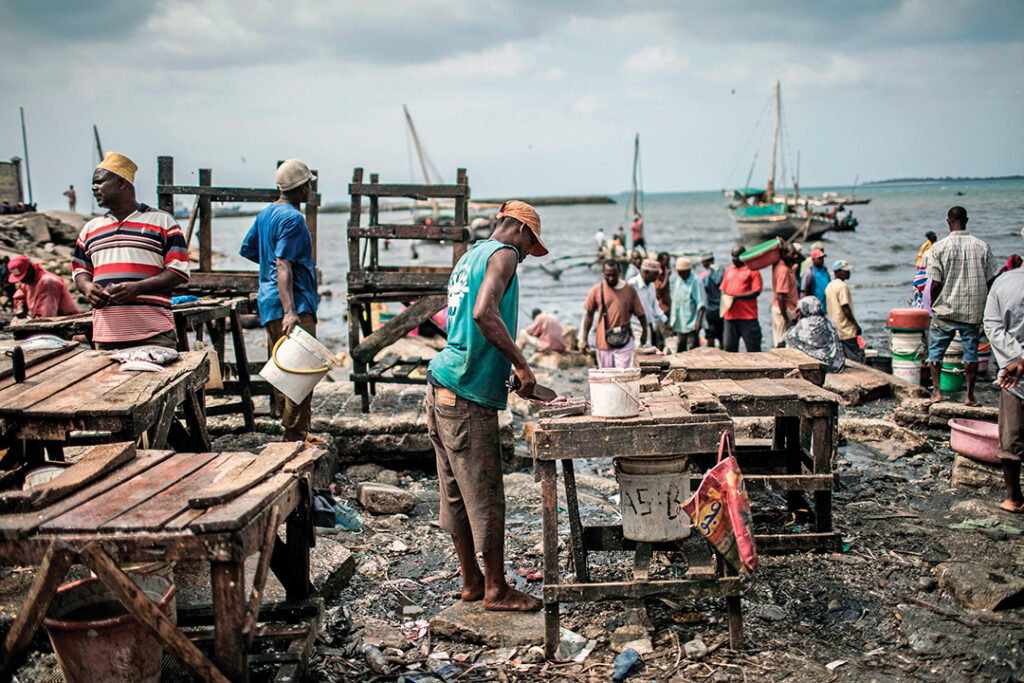ADF STAFF
Tanzania has plans to boost its “blue economy,” the sustainable use of ocean resources to support tourism, jobs and environmental protection. But before that can happen, the country has to come to grips with illegal fishing.
Illegal, unreported and unregulated fishing is stripping Africa of its natural resources.
Tanzanian Livestock and Fisheries Minister Mashimba Ndaki said officials are determined to tighten current fishing industry regulations.
“Unfortunately, there are still dishonest and greedy fishermen in the country who are helping aliens to smuggle fish and other products outside the country, as well as engaging in fishing using prohibited fishing gear,” Ndaki told Tanzanian newspaper Daily News.
Driftnets, which hang vertically from flotation devices on fishing boats, can scoop up vast amounts of fish, including sea life that has no commercial value. The nets are largely responsible for depleting fish stocks and destroying ecosystems. The United Nations banned the nets 30 years ago, but illegal fishing operations still use them off the coasts of Kenya, Mozambique and Tanzania.
Increased fishing patrol and surveillance efforts could be crucial to unlocking Tanzania’s blue economy potential. Its 850-kilometer coastline, which includes Zanzibar and several small islands, makes the area particularly difficult to patrol.
Since 2018, Tanzania has partnered with Sea Shepherd Global, a nongovernmental organization, to increase maritime security. Shortly after the partnership formed, Sea Shepherd helped Tanzanian authorities arrest the captain and owner of a Malaysian-flagged shark-finning vessel. The men were sentenced to 20-year prison terms, the organization reported.
Sea Shepherd’s mission is to find and board trespassing vessels or other boats engaged in prohibited behaviors, such as shark finning or netting juvenile fish, the BBC reported. Recently, the group has worked with African governments in Benin, Gabon, Liberia, Namibia and Tanzania.
Shortly after the Sea Shepherd patrols began in Tanzania, authorities made 10 arrests. Afterward, 24 vessels immediately departed Tanzanian waters, and 19 of those left without receiving mandatory inspections.
Tanzania also is supported by FISH-i Africa, a partnership with Comoros, Kenya, Madagascar, Mauritius, Mozambique, Seychelles and Somalia that promotes sharing information and regional cooperation to combat large-scale illegal fishing in the Western Indian Ocean.
Tanzania takes in an estimated 390,000 metric tons of fish from deep sea and inland fishing. The government hopes to increase fish production to at least 714,000 metric tons to achieve its per-capita fish consumption target of 10.5 kilograms, SeafoodSource reported.

